US-based LanzaTech has announced plans to build and commission what it claims will be the world’s first commercial-scale alcohol-to-jet (ATJ) production facility using ethanol feedstock made from steel mill waste gases and other wastes. The proposed facility in South Wales, UK, is expected to produce around 100 million litres per year of ATJ synthetic paraffinic kerosene (ATJ-SPK), which with a 30% blend target will yield around 330 million litres of blended sustainable aviation fuel (SAF) annually. LanzaTech will both build and operate this first UK deployment of the LanzaJet ATJ technology and then has ambitions with spin-out company LanzaJet to develop multiple follow-on projects in the UK and globally as the SAF market develops. This will be done primarily via a licensing model in which customers build, own and operate facilities that use the LanzaJet technology. The SAF from the South Wales facility will be used by UK-based airlines, including long-term partner Virgin Atlantic, which used LanzaTech jet fuel made from recycled waste gases on a commercial flight from Orlando to London Gatwick in October 2018.
That same year, LanzaTech, Virgin Atlantic and partners received a £410,000 ($570,000) grant from the UK Department for Transport (DfT) in respect of its Future Fuels for Flight and Freight Competition for a feasibility study on the project, which is now into the planning and permitting stage. For now, LanzaTech is holding back on releasing a fuel production start-up date.
The facility will be developed within Phase 2 of the South Wales Industrial Cluster (SWIC), a consortium involving 17 partners led by UK technology-based construction and engineering company Costain, which is aiming to create the world’s first net-zero emissions industrial zone and is aligned with the UK government’s ten-point plan for a green industrial revolution. This phase of SWIC is supported by £20 million ($28m) grant funding from Innovate UK, with an additional £17.6 million provided by industry, and aims to reduce industrial emissions at sites throughout South Wales in support of Welsh NetZero targets.
Within SWIC, LanzaTech said that with Costain’s support it will select the final project site, perform site-specific engineering and obtain facility permits. A spokesperson for the Chicago-headquartered company confirmed it has already engaged with stakeholders across the jet fuel supply chain – including fuel distributors, tank farms, major airlines and airports – to map out options for blending its ATJ-SPK with fossil jet fuel and distributing it via an existing infrastructure to the airports and into planes.
The LanzaJet ATJ process developed by LanzaTech and the US Department of Energy’s Pacific Northwest National Laboratory (PNNL) can use any source of sustainable ethanol made from, but not limited to, non-edible agricultural residues, such as wheat straw, and recycled industrial emissions that are otherwise unavoidable. The batch provided for the Virgin Atlantic flight was made by recycling waste industrial gases into ethanol.
“We are evaluating sites for an integrated recycled carbon fuel to SAF plant but are also working on a standalone ATJ facility that takes any source of ethanol and converts it to SAF,” the spokesperson told GreenAir. “A lot does depend on the policy landscape in the UK as currently fuels made from recycled carbon, including industrial off gases, don’t qualify under the government’s Renewable Transport Fuel Obligation (RTFO). As part of a recent DfT consultation, there is scope they will be included in the future.”
LanzaTech CEO, and Chair of the LanzaJet Board, Dr Jennifer Holmgren sits on the UK government and industry Jet Zero Council, and company representatives take part in the Council’s working groups.
“Aviation presents unique decarbonisation challenges and it will take a global approach to help this key hard-to-abate sector meet net zero targets,” said Holmgren. “It is thanks to the support and close partnership with the US DOE and its PNNL energy laboratory that we are now able to bring our unique platform to the UK, with the combined support of industry and the UK government, including Innovate UK and United Kingdom Research and Innovation. This model of government and industry collaboration is precisely what the world needs to rapidly speed the pace of technology development and deployment.”
Added LanzaJet CEO Jimmy Samartzis: “The acceleration of the SAF industry is at an inflection point where government support to develop it is critical and we’re grateful for the UK government’s actions and support, serving as a model for other countries to follow.”
Responded UK Aviation Minister Robert Courts: “Sustainable aviation fuels have enormous potential to cut carbon emissions, support the creation of thousands of jobs and help us to build back better and greener. LanzaTech’s innovative technology gets us one step closer to being able to produce SAF at scale and deliver our world-leading decarbonisation programme, all while boosting local jobs in South Wales.”
Juha Järvinen, Chief Commercial Officer for Virgin Atlantic, said the airline had been a long-standing supporter of LanzaTech and the government now had a significant opportunity to create a UK-based production capability that could lead the way in the decarbonisation of the UK airline sector.
“As US firms start to build out their overseas capability, we would urge the UK government to accelerate its support for first-of-a-kind production facilities and put in place a favourable regulatory regime and financial guarantees to do so,” he said.
In February, British Airways revealed it was to invest in LanzaJet and purchase SAF to be produced at the US producer’s Freedom Pines Fuels facility in Georgia and used on BA flights from the US. The partnership also extends to the airline supporting LanzaJet plans for a potential commercial-scale UK biorefinery (see article).
LanzaTech has also announced the appointment of Jim Woodger as Managing Director of LanzaTech UK. Woodger previously served at Corbion, TerraVia (formerly Solazyme) and UOP’s Renewable Energy & Chemicals business.
Photo: Virgin Atlantic flight using LanzaTech ATJ fuel touches down at London Gatwick in 2018


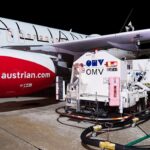





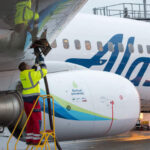
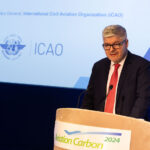

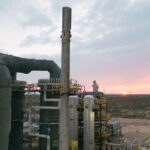

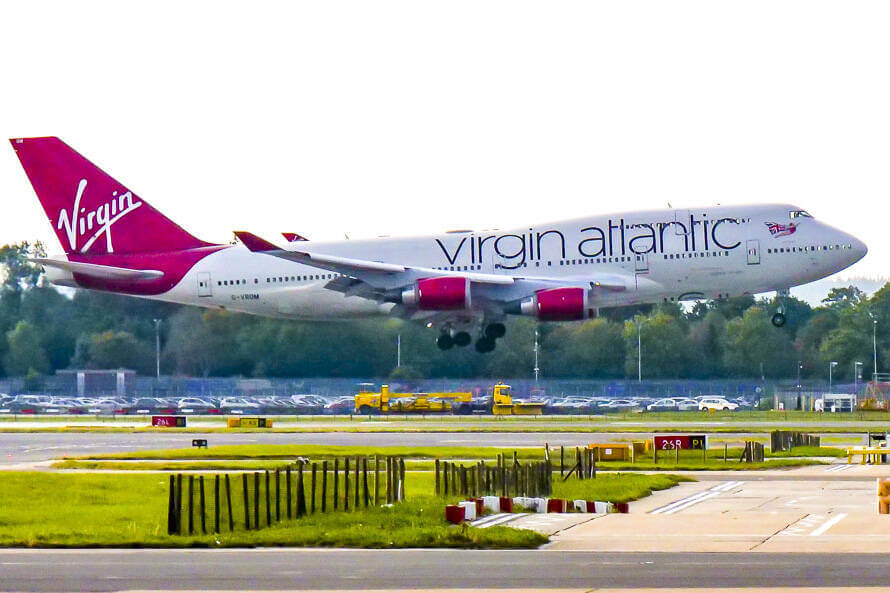

More News & Features
Progress on decarbonising the airline sector has been slow this year, says IATA chief
EASA releases status report on Europe’s SAF production and readiness to meet blending targets
UK government sets out new Jet Zero focus and launches consultation on CORSIA global emissions scheme
New study highlights differing strategies and barriers to decarbonising aviation in UK and Europe
New partnerships formed to drive e-SAF production in Nordic markets
IAG continues to go big on e-SAF as it inks 10-year offtake agreement with Infinium